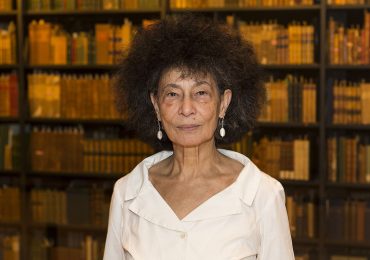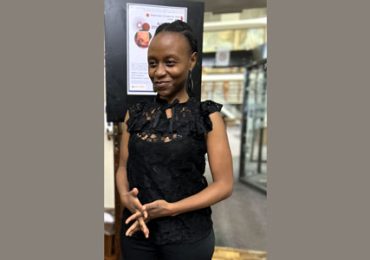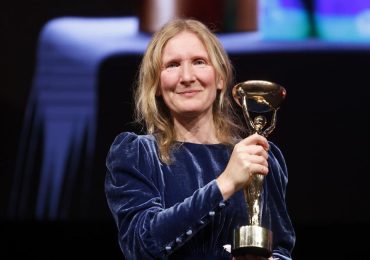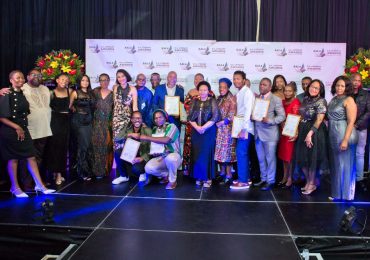Prominent writer, academic and critic Stephen Gray has died.
Gray passed away in Johannesburg on Thursday, 22 October, at the age of seventy-eight, after a short illness.
Gray was an influential anthologist and literary historiographer, and a prolific writer. He was the author of eight novels and several volumes of poetry, as well a number of plays and an autobiography, Accident of Birth (1993). He published acclaimed biographies of Herman Charles Bosman and Beatrice Hastings, and his many edited collections of poetry and short stories were influential in shaping the South African canon. He was instrumental in the founding of the Centre for South African Theatre Research and a valued supporter of the Amazwi South African Museum of Literature (formerly the National English Literary Museum, NELM). He also contributed literary journalism regularly to The London Magazine and the Mail & Guardian.
But it was his poetry that was closest to Gray’s heart. In an interview with Chris Dunton for English in Africa on the occasion of his sixtieth birthday in 2001, when asked about his wide-ranging writing, Gray said:
‘The poetry is the centre of it all, it’s the most important to me, it’s the work I’d like to stand or fall by.’
In the Introduction to his Selected Poems 1960–92 (1994), Gray wrote:
‘If asked to summarise what I feel my main prepoccupations in poetry have been up to this great divide, I would have to reply: love and apartheid. The interrelationship between the two has been my chief subject matter (what else could it have been?). […]
‘[M]y function has been to remain devoted to finding ways in which poetry itself may continue to express alternatives to unsatisfactory conditions.’
Gray was born in Cape Town on 30 November 1941, and went to school at St Andrew’s College in then-Grahamstown (now Makhanda). He later studied at the University of Cape Town, before earning a BA and MA from Cambridge University, England, where he was editor of Granta and the director of the Cambridge Shakespeare Group. He received an MFA in Creative Writing from the University of Iowa in the United States, and following that taught English at universities in the US and at Aix-Marseille University in France, before returning to South Africa. In 1969 he joined the English Department at Rand Afrikaans University, earning a DLitt and DPhil and remaining as Professor of English until 1992. His doctoral dissertation, published as Southern African Literature: An Introduction (1979), was considered a seminal collection of historiographical essays.
Gray studied under Kurt Vonnegut at the Iowa Writers Workshop in the mid-nineteen-sixties, and Vonnegut subsequently furnished Gray’s ambitious novel Time of Our Darkness (1988) with a glowing blurb, describing it as depicting the ‘real lives of South Africans … alive and personal’ and offering ‘truths of a very high order’.
The playwright Athol Fugard said of Time of Our Darkness:
‘While focusing on the most agonising personal and political problems, Stephen Gray portrays the human face of a tormented country with passion and deceptive irony.
‘This novel is not only a novel about liberation, but a liberated novel. The story and the telling of it is wonderfully free of all the cliches and stereotypes of the contemporary South African scene, and the brand of ironic humour vastly entertaining. A totally absorbing and deeply moving experience.’
As Peter Dickinson writes, Gray was ‘always one to blur the boundaries between categories (be they generic or sociopolitical)’:
‘As [Gray] noted on more than one occasion, the legacy of apartheid has forced the South African writer into a position of negotiating between cultural extremes, into crossing multiple and manifold borders. This “hybrid” aesthetic, this “translational” ethic, is well represented in Gray’s eight published novels, which regularly transgress the margins of race, class, and sexuality.’
Gray was the editor of the experimental southern African literary journal Izwi in the nineteen-seventies, and from 1997 to 2006 was one of the editors, along with Craig MacKenzie, of the fourteen-volume Anniversary Edition of the works of Herman Charles Bosman. He was also the series editor for the South African Penguin Modern Classics series, which launched in 2005.
In 1993 Gray received the English Academy’s Gold Medal, and in 2007 he received a South African Literary Award for Lifetime Achievement, in particular for his ‘dedication to African and world poetry and literary arts’.
The JRB extends condolences to Gray’s family and friends.





